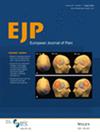Harnessing the therapeutic effects of nature for chronic Pain: A role for immersive virtual reality? A narrative review
Abstract
Background and Objective
There is a growing interest in the relationship between nature and pain relief. Evidence from environmental psychology, neuroscience and physiology-based studies point towards analgesic effects of nature being mediated through various cognitive, affective and/or autonomic factors. Being able to harness these therapeutic effects using immersive virtual reality (VR) could help to optimize and improve accessibility of nature-based environments as part of chronic pain management plans. In this narrative review, we present evidence supporting a new theoretical framework for nature-based analgesia and suggest ways for applying this through immersive VR.
Databases and Data Treatment
We provide an overview of the evidence on (1) the therapeutic effects of nature on pain, (2) environmental psychology theory that underpins the health benefits of nature, (3) key mechanistic evidence from nature neuroimaging and physiology-based studies, (4) previous studies that have used VR-based nature in pain research and (5) how to design effective VR interventions that can be used to integrate nature into immersive 360 environments.
Results
We have demonstrated how environmental psychology, neuroscience and physiology-based research can be used to form a novel theoretical framework for nature-based analgesia. Using this framework, we identify how key aspects of nature can act as analgesic and how this can be harnessed using immersive VR.
Conclusions
Through developing this theoretical framework, we have provided a foundation on which to guide future experimental and clinical studies as well as helping to improve the accessibility of nature for chronic pain patients through immersive VR technologies.
Significance
This review article summarizes key multidisciplinary evidence to help understand how nature exerts beneficial effects on pain processing. The use of this theoretical framework alongside advances in immersive VR technologies provides a springboard for future research and can be used to help develop new nature-based therapeutics using VR.


 求助内容:
求助内容: 应助结果提醒方式:
应助结果提醒方式:


